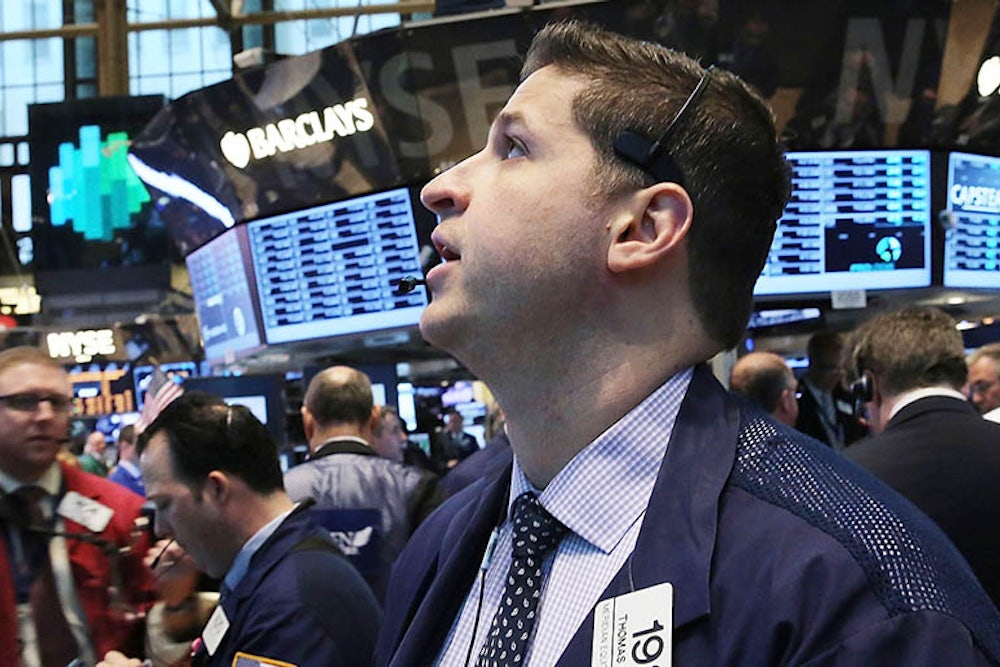Two kinds of uncertainty affect our decisions—the unpredictability of the world, and the instability that indecision about law and policy creates. The former is perennial and ineradicable; the latter varies with the character of governance. While we always make decisions in conditions of uncertainty, there are times in which man-made surplus uncertainty further clouds the crystal ball. This matters because beyond a certain point, uncertainty can paralyze decision-making. As economists Scott Baker, Nicholas Bloom, Steven J. Davis, and John Van Reenen recently argued, “Uncertainty can retard both investment and hiring as firms become more reluctant to make costly decisions that may soon need to be reversed. It can also lead households to adopt a more cautious stance in their spending behavior.”
Emerging evidence suggests that this mechanism is at work in the United States today. Baker, Bloom, and Davis have constructed an Index of Economic Policy Uncertainty. During most of the past five years, this index has been at or near record highs. To be sure, separating policy uncertainty from the effects of low demand poses analytical challenges. Still, Bloom and colleagues used a macro-econometric model to estimate that net of other factors, the rise in policy uncertainty since 2007 has reduced employment by more than 2 million jobs below the level it would otherwise have reached. Based on that research, the Vanguard Group recently estimated that since 2011, policy uncertainty has created a $261 billion drag on the economy, reducing real GDP growth by a full percentage point per year during that period—the equivalent of more than $800 per person.
I am not an economist and cannot offer an expert evaluation of this thesis. (I invite those who are to jump in and do so.) But I can say that it is intuitively plausible. In the first place, reversing decisions in response to changed circumstances can be expensive, especially if those decisions involve investment in capital or human resources that are less liquid than are publicly traded financial instruments. And second, uncertainty can freeze us in place. I know many people who are keeping large amounts of their portfolio in cash, earning nothing, because they worry that policy uncertainties at home and abroad could lead to abrupt changes in the value of financial assets. They would rather be certain of losing a percent or two to inflation than risking a 10 or 20 percent capital loss. And because of the well-known psychological asymmetry—the pain of loss endured exceeds that of gain foregone—we regret the latter less than the former. Sure, we kick ourselves when we miss out on an upward move in the market, but not as much as when we plunge in, only to see the market go south.
If this is correct, the much-discussed polarization of our politics is a problem for our economy, above and beyond the effects of inadequate demand, tight credit, and slowing export growth. Reaching broadly supported agreements on fiscal policy, health care, regulation, energy, and immigration would boost economic growth and job generation. When the American people say—as they do in overwhelming numbers—that they want their elected officials to stop fighting one another and start fixing the problems, they’re not just asking for good government. They intuitively understand that what’s going on in Washington is bad for their incomes and job prospects as well.
